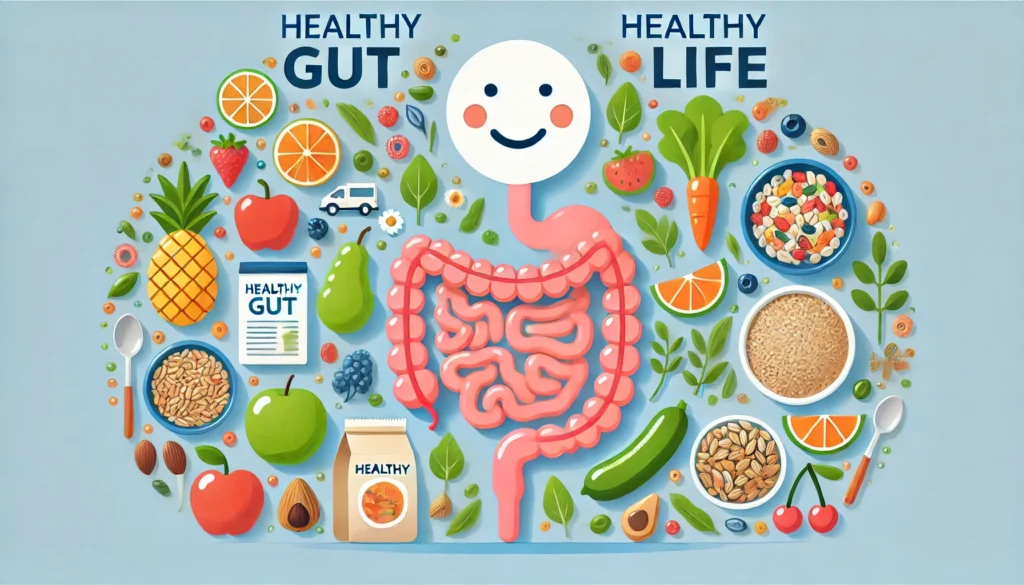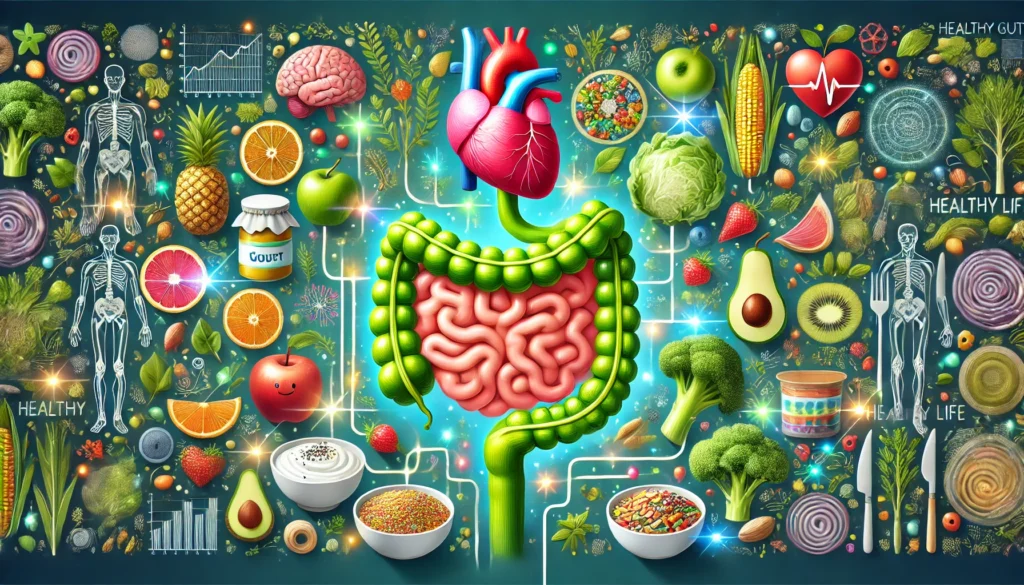How Diet Affects Mental Health-by wall of impact

Understanding the Gut-Brain Connection
Have you ever wondered why your stomach feels like it’s in knots when you’re stressed, or why a hearty meal can make you feel so much better? That’s your gut and brain talking to each other. This fascinating communication between your gut and brain is what scientists call the gut-brain connection. It turns out, what you eat can significantly influence how you feel mentally and emotionally.
The Role of the Gut Microbiome
Inside your digestive tract lives a bustling community of trillions of microbes, known as the gut micro biome. These tiny organisms play a huge role in your overall health, including your mood, behaviour, and even your thoughts. Studies have shown that an imbalance in these microbes (dysbiosis) can be linked to mental health issues like depression and anxiety (Kelly et al., 2016).
One eye-opening study found that people with major depressive disorder had different gut micro biomes compared to healthy individuals (Jiang et al., 2015). Even more compelling, when gut bacteria from depressed individuals were transferred to healthy mice, the mice began to show symptoms of depression (Zheng et al., 2016). This suggests that our gut micro biome might be influencing our mental health more than we ever imagined.
How Modern Diets Affect Gut Health
Let’s talk about what we’re eating today. Many modern diets are high in processed foods, sugars, and unhealthy fats. These choices can harm our gut health, leading to a decrease in beneficial bacteria and an increase in harmful ones. This imbalance can trigger inflammation and other health issues, including mental health disorders.
On the flip side, a diet rich in fibre, whole grains, fruits, vegetables, nuts, and seeds can promote a healthy gut micro biome. These foods provide essential nutrients and prebiotics that feed the good bacteria in your gut. For example, foods like apples, bananas, and oats help beneficial bacteria thrive, which in turn can improve your mood and cognitive functions.
The Power of Nutritional Psychiatry
Nutritional psychiatry is an exciting field exploring how dietary choices affect mental health. For instance, omega-3 fatty acids found in fish and nuts are known to boost brain health and improve mood (Grosso et al., 2016). Probiotics (found in yogurt and fermented foods) and prebiotics (dietary fibres that feed good gut bacteria) are being studied for their potential to alleviate symptoms of depression and anxiety (Nikolova et al., 2017).
A notable study showed that probiotic supplements could significantly reduce depressive symptoms in patients with major depressive disorder (Akkasheh et al., 2016). This means that what you eat can be a powerful tool in managing and improving your mental health.
The Gut-Brain Axis and Stress
The gut-brain axis plays a crucial role in how we respond to stress. This axis involves the production of neurotransmitters like serotonin (the “feel-good” hormone) and GABA, which help regulate our mood and anxiety levels. Interestingly, about 90% of serotonin is produced in the gut, highlighting the importance of gut health in maintaining mental well-being.
Chronic stress can disrupt this delicate balance, leading to gut dysbiosis and increased inflammation, which can worsen mental health symptoms (Foster et al., 2017). For example, stress can lead to a “leaky gut,” where the intestinal barrier becomes more permeable, allowing harmful substances to enter the bloodstream and trigger inflammation
Lifestyle Choices for a Healthy Gut
Beyond diet, other lifestyle factors can significantly impact gut health. Regular exercise, adequate sleep, and stress management techniques like meditation and yoga are all beneficial. Physical activity, for instance, can increase the diversity of gut bacteria and promote the production of anti-inflammatory substances (Monda et al., 2017).
Sleep is another crucial factor. Poor sleep can disrupt the gut micro biome and increase inflammation, while good sleep can promote a healthy gut and overall mental health (Benedict et al., 2016). Mindfulness and yoga can help reduce stress and its negative impacts on the gut-brain axis.
Integrating Gut Health into Mental Health Care
Given the strong connection between gut health and mental well-being, integrating dietary and lifestyle changes into mental health care is a holistic approach that can yield significant benefits. Personalized dietary plans, including plenty of fibre-rich and fermented foods, along with regular exercise and stress management techniques, can optimize mental health outcomes (Jacka et al., 2017).
Why Eating Healthy Matters
Eating healthy isn’t just about maintaining a good physique; it’s about keeping your mind in top shape too. Here are some compelling reasons to prioritize a gut-friendly diet:
- Improved Mood: Healthy foods can boost the production of neurotransmitters that regulate mood.
- Reduced Anxiety and Depression: A balanced diet rich in omega-3s, probiotics, and prebiotics can alleviate symptoms of anxiety and depression.
- Better Stress Response: A healthy gut can help you manage stress better by maintaining the balance of crucial neurotransmitters.
- Enhanced Cognitive Function: Nutrient-rich foods support brain health and improve cognitive functions like memory and focus.
- Overall Well-being: Good gut health translates to better digestion, stronger immunity, and reduced inflammation, contributing to overall well-being.
Conclusion
Understanding the gut-brain connection shows us that taking care of our gut is essential for maintaining mental health. By making mindful food choices and adopting a healthy lifestyle, we can support our gut micro biome and, in turn, our mental well-being. So, the next time you plan your meals, remember that good food truly leads to a good life.
References
- Akkasheh, G., et al. (2016). Clinical and metabolic response to probiotic administration in patients with major depressive disorder: A randomized, double-blind, placebo-controlled trial. Nutrition, 32(3), 315-320.
- Benedict, C., et al. (2016). Sleep and its impact on gut microbial diversity and inflammation. Sleep Medicine Reviews, 27, 32-37.
- David, L. A., et al. (2014). Diet rapidly and reproducibly alters the human gut microbiome. Nature, 505(7484), 559-563.
- De Palma, G., et al. (2015). Microbiota and host determinants of behavioural phenotype in maternally separated mice. Nature Communications, 6, 7735.
- Foster, J. A., et al. (2017). The brain-gut axis: A target for treating stress-related disorders. Nature Reviews Drug Discovery, 16(10), 719-732.
- Grosso, G., et al. (2016). Omega-3 fatty acids and depression: Scientific evidence and biological mechanisms. Oxidative Medicine and Cellular Longevity, 2016, 3138259.
- Jacka, F. N., et al. (2017). A randomized controlled trial of dietary improvement for adults with major depression (the ‘SMILES’ trial). BMC Medicine, 15(1), 23.
- Jiang, H., et al. (2015). Altered gut microbiota profile in patients with generalized anxiety disorder. Journal of Psychiatric Research, 63, 1-7.
- Kelly, J. R., et al. (2016). Breaking down the barriers: The gut microbiome, intestinal permeability and stress-related psychiatric disorders. Frontiers in Cellular Neuroscience, 10, 392.
- Monda, V., et al. (2017). Exercise modifies the gut microbiota with positive health effects. Oxidative Medicine and Cellular Longevity, 2017, 3831972.
- Nikolova, V. L., et al. (2017). Gut feeling: Randomized controlled trials of probiotics for the treatment of clinical depression: Systematic review and meta-analysis. Journal of Affective Disorders, 222, 8-16.
- Smith, R. P., et al. (2019). Gut microbiome diversity is associated with sleep physiology in humans. PLOS ONE, 14(10), e0222394.
- Suez, J., et al. (2014). Artificial sweeteners induce glucose intolerance by altering the gut microbiota. Nature, 514(7521), 181-186.
- Zheng, P., et al. (2016). Gut microbiome remodelling induces depressive-like behaviours through a pathway mediated by the host’s metabolism. Molecular Psychiatry, 21(6), 786-796.







